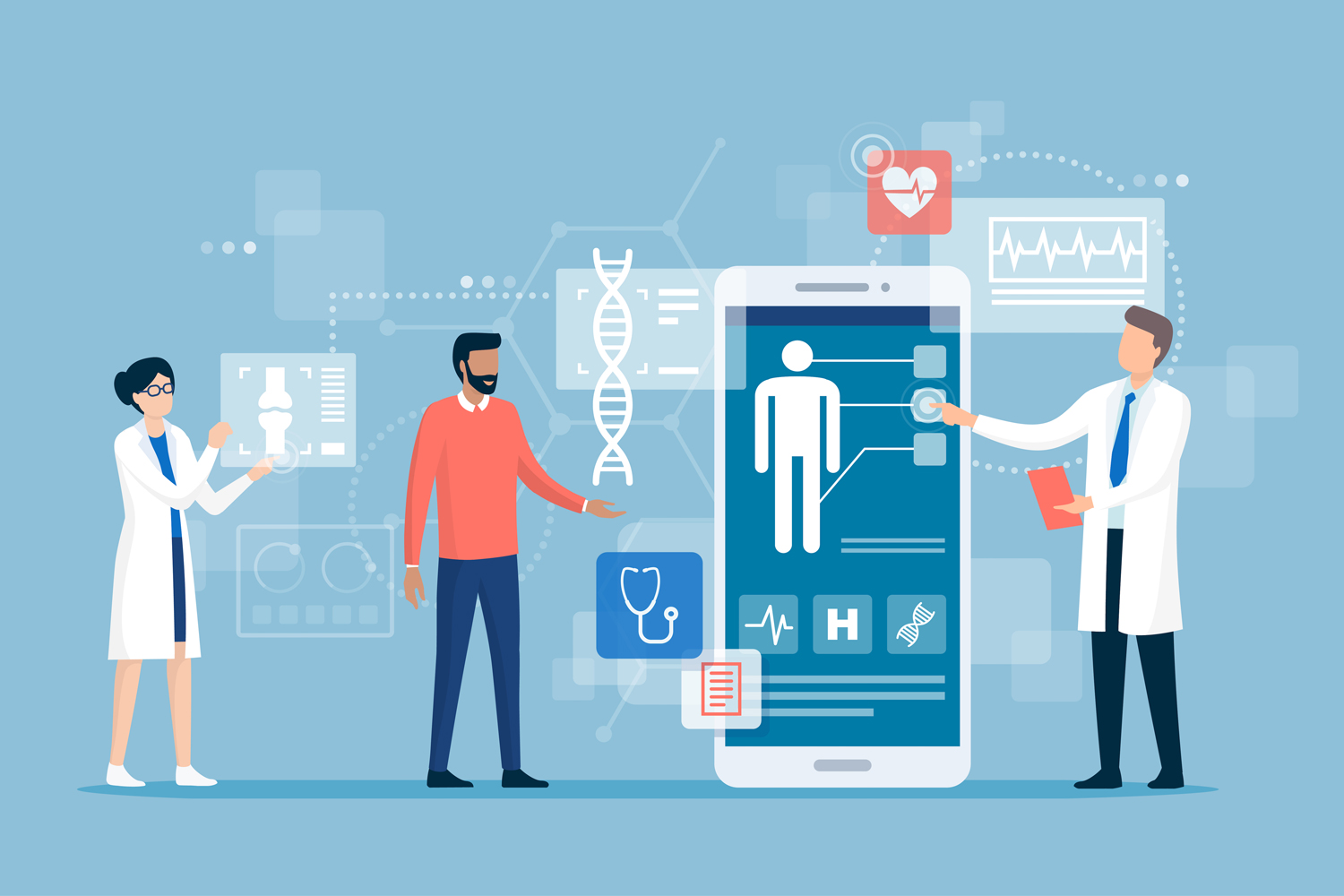MANY CANCER PATIENTS EDUCATE THEMSELVES by doing research online to become more informed and more active in their own care. Not only does such knowledge empower them in their interactions with medical providers, but patients also are becoming important partners in research, from designing clinical trials to updating treatment guidelines to speaking as experts from their own experiences. These patients are becoming known as e-patients.
“E-patients were first described in 1996 as patients ‘enabled, empowered and engaged’ in their own care, which has increasingly become digital, allowing the ‘e-’ to signify even more, through everything from telehealth to online advocacy and research,” says Stephanie L. Graff, director of breast oncology at Lifespan Cancer Institute in Providence, Rhode Island. Graff is a co-author of “The Rise of the Expert Patient in Cancer: From Backseat Passenger to Co-navigator,” a paper in the August 2022 JCO Oncology Practice that examines the role of e-patients in care and research.
How E-Patients Are Changing Research
While many e-patients are actively involved in their own treatment as well as in advocacy for cancer research, that’s just the beginning of their contributions. “For example, they have shared their patient perspectives for grant proposal reviews, clinical trial protocols, institutional review boards and federal agencies,” says Janet Freeman-Daily, co-founder, president and board chair of the ROS1ders, a global group of patients and caregivers living with ROS1+ cancer. She also is a co-author of the paper on e-patients. Other examples include participating in online support groups, creating online disease-focused communities, and partnering in patient-driven research efforts like LUNGevity Foundation’s Patient-Focused Research Center.
“In an ideal setting, doctors would collaborate with e-patients as full members of their own care team to assess information the patient has found online and employ shared decision-making to select the best treatment option for that patient,” Freeman-Daily says. “Physician-researchers can also benefit from collaborating with e-patients to help collect patient specimens to study cancer biology and to use for creating cancer models of rarer cancers, develop patient registry studies, and develop clinical trials that facilitate participation by diverse and geographically dispersed communities.”
E-patients are making progress in being seen by researchers and clinicians as valuable partners, not only in their own care but also in advocacy. “I think patients at every level of e-patient are less reluctant to bring up information they found online and talk about it with their doctor,” Graff says. “That is refreshing and helps to establish trust between both physician and patient. I also think the broader cancer community—researchers, organizations, industry, clinicians—are embracing the role of patient advocates and getting more comfortable involving advocates at every step of the research process and truly partnering.”
More work still needs to be done. “It would be great if more physicians and researchers took the time to help patients better understand their cancer, evidence-based treatments and the research process,” Freeman-Daily says. “The internet is a wonderful resource that offers several modes of learning, but some people learn better by asking questions than by reading or watching a video. Unfortunately, clinicians today are allowed very little time for interacting with patients.” She believes both medical students and cancer researchers need more exposure to e-patients in order to better communicate with them.
The E-Patient in the Clinic
For e-patients trying to navigate these relationships in treatment, Freeman-Daily recommends the following:
- Write out your questions before your appointment.
- Take a trusted companion or a voice recorder to your appointment so you can revisit the conversation. Be sure to ask your doctor’s permission before recording any conversation.
- Be respectful of the health care provider’s time. Only share research studies from respected journals that are backed by evidence. (Anecdotes are not evidence.) Don’t expect your doctor to sort through a stack of papers during your appointment. When asking questions by email, remember the researcher or doctor might not have a chance to respond to you promptly.
- It’s OK to get a second opinion.
- It’s your life. If your provider is unwilling to listen to your concerns or answer your questions thoroughly, find another doctor.
Highly educated patients are becoming the new normal, and it’s important for the patient-doctor relationship to evolve accordingly. By doing so, both patients and doctors can maximize the effectiveness of treatment and care.
Cancer Today magazine is free to cancer patients, survivors and caregivers who live in the U.S. Subscribe here to receive four issues per year.





